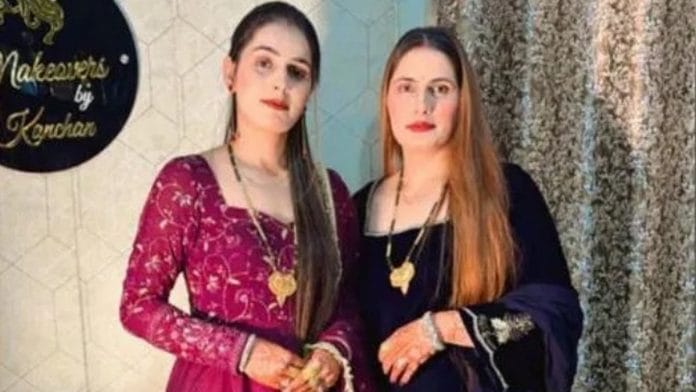Nikki Bhati was beaten, set on fire, and left to burn inside her own home in Greater Noida’s Sirsa village. At first, the incident was reported as yet another case of a dowry killing. But soon, the story began to shift. Was it really dowry demands? Was it because Nikki and her sister wanted to reopen their beauty parlour, something her husband Vipin opposed? Was it his anger over her Instagram Reels? The motives kept changing, but the violence remained undeniable.
A Ground Report by ThePrint revealed that Nikki’s Reels slowly became the reason for her killing. It may sound shocking that a woman could be killed for something so ordinary—but is it really? In our society, women are punished the moment they step beyond the lines drawn for them: murdered in the name of honour by their own families, beaten to death for wearing jeans, killed for posting videos online.
Sometimes, the punishment is swift and brutal. Other times, it takes the form of relentless shaming and mob trials that leave women with no choice but to end their own lives.
The sad reality is that these are not rare cases. Yes, they make headlines, spark outrage, and become the subject of national debate, but pick up any newspaper on a given day and you will find at least one report of violence against women. Most don’t even shake us anymore—that’s how deeply the violence has been normalised. Once every few months, of course, a case like Nikki’s breaks through and forces its way into national conversation.
The outrage comes and goes like a passing storm. People pick their angles—some point to patriarchy, others take the ‘bad apple’ route, arguing that the system isn’t stacked against women. The administration moves quickly, arrests are made, and statements are issued because public anger demands it. And then, just as quickly, the fire dies out. A new headline replaces it, and we move on until the next death drags us back to the same cycle of shock.
Beneath the outrage
It’s not as if punishing women for their choices is new, or that we haven’t been fighting against patriarchal control for decades. And yet, in 2025, we still haven’t broken free. The question that burns beneath all the outrage is, why has so little changed in our homes and on the streets? Why does society still refuse to grant women real autonomy? Why does it accept their deaths as routine?
We have laws to protect women, but it’s clear that this isn’t enough—something deeper in our society must change. Why is it that from childhood, girls are taught that they carry the family’s “honour” on their shoulders? Why are parents so willing to spend a fortune just to marry off their daughter, to “secure” a man who will supposedly take care of her, instead of using the money to empower her? And then there are the parents who choose to kill their own daughter if they believe that her choices have brought “shame” upon them.
In Nikki’s case, too, reports suggest that her family is framing it as a dowry killing. Perhaps admitting that her Reels—the simple act of expressing herself—led to her death, would mean confronting a truth they cannot bear. In such a culture, honour isn’t about dignity at all—it is about control, even over a woman’s memory.
So it all comes down to one thing—social approval. In a place where the greatest sin is to defy norms, how can there ever be space for a woman’s autonomy? That absence is the real problem at the heart of it all.
Also read: Bihar is a state of opportunities, not challenges. Land record portal to water atlas
Honour, control, erasure
Women’s choices expose the lie society is built on—“honour” is not about morality or dignity, but about patriarchal control. When a woman chooses for herself—who to marry, what to wear, whether to leave a marriage—she claims ownership of her own life. Families and clans see this as rebellion—an insult they find impossible to live with. A woman’s death, in their eyes, is therefore preferable to the shame of allowing her to live freely. A silenced daughter preserves “honour” better than a living one who dares to make her own decisions.
And that’s how the cycle still continues. Laws can punish, outrage can flare, but the deeper problem persists: a society where women’s autonomy is still not normalised. Empowerment is not just education, jobs, or independence on paper; it is the freedom to make choices without fear. Until that becomes a part of our culture, every law will remain only half a solution.
Imagine a society that truly respects women’s autonomy, where living on one’s own terms is not seen as rebellion. How different would life look for all these women we now read about only as victims? They would not be burned for making their choices or killed for bringing shame to their families. They would walk away from abuse, chase their own dreams, and build lives not defined by compulsion. A daughter would not be seen as a burden.
Until women have real autonomy, the tragedy will not end—only the names will keep changing, from Nikki today to someone else tomorrow.
Amana Begam Ansari is a columnist, writer, and TV news panellist. She runs a weekly YouTube show called ‘India This Week by Amana and Khalid’. She tweets @Amana_Ansari. Views are personal.
(Edited by Prasanna Bachchhav)






